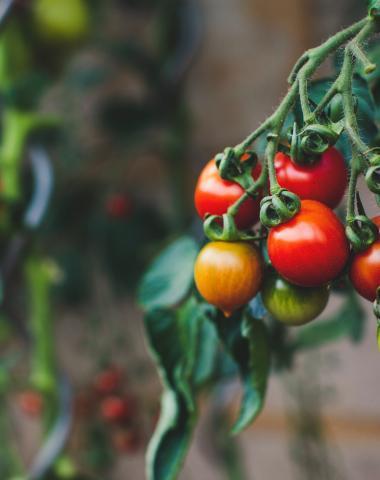On 29 April 2021, the European Commission published a working document on the legal future of ‘New Genomic Techniques’ in Europe. In its document, the Commission appears to be convinced that new genetic engineering techniques (NGTs) are an important part of their wider sustainability agenda and in line with the EU Green Deal and the Farm to Fork and Biodiversity strategies.
This study could set into motion a European processes exploring options for a new legal framework if EU Member States give their green light. If the Ministers of the Member States go along with the line of the Commission, a new legal framework could create a challenging situation. This is because on the one hand, the Commission seeks to increase organic land and agroecological production, and on the other hand they also intend to promote farming systems relying on GMOs. The organic food and farming movement criticises the Commission’s plan to take NGTs out of the existing legal framework applying to GMOs for agriculture & food as it could leave organic food systems unprotected – including its ability to trace GMOs throughout the food chain to avoid contaminations leading to economic losses and to live up to organic quality standards and consumer expectations.
IFOAM Organics Europe, the European regional body of IFOAM - Organics International, called on the ministers of agriculture and environment of the EU Member States and the EU Commission to safeguard producers and farmers’ capability to produce without GMOs and allow consumers to choose what they eat. The existing GMO regulation is fit to achieve these goals and already allows research on and marketing of GMOs if the applicable rules are respected. This was also confirmed by a 2018 ruling of the European Court of Justice.
According to the organic movement, transparency on using genetic modification should continue to apply all along the food production chain. At EU level, contrary to the Commission study’s outcomes, weakening the regulation of these technologies would actually contradict the objectives of the EU Green Deal and the EU Farm to Fork and Biodiversity strategies. Globally, this would mean the EU yields to the agroindustry’s pressure to deregulate certain GMOs in Europe, losing its place as example of a continent on which GMO-free production is possible and dominant.
It is incoherent that the Commission envisages to jeopardize the development of existing agronomic solutions put forward in its own Farm to Fork strategy to incentivize genetic modification technologies in agriculture and food with at track record of unfulfilled promises.
As history has shown, promises of producers heralding GMOs and ‘New Genomic Techniques’ as alternatives to pesticide-tolerant crops should be treated with caution. The claim that NGT would contribute to the EU Green Deal and Farm to Fork strategy’s objectives is based on assumptions about potential crops that could be developed in the future and not on those (few) crops that are market ready or in the application process [i]. Mere promises of expected benefits do not justify a weakening of the EU’s standards with regard to environmental protection and farmers’ and consumers’ choice. Safety checks for new genetic engineering techniques are essential, as a proper risk assessment is necessary to assess the potential risk to health and the environment of a particular genome-edited crop on a case-by-case basis.
Rather than depending on and hoping for silver bullet solutions such as GM crops, Europe should upscale concrete and well-defined agroecological practices with proven benefits for biodiversity and soil quality. Organic farming is already implementing a wide range of practices to make our food and farming systems more resilient to pests and diverse environmental conditions, as well as extreme weather events linked to climate change while reducing the dependency on synthetic pesticides.
In the next step, the Commission will present their plans to the Ministers of the Member States at an Agriculture Council meeting on 26-27 May, to members of the European Parliament and stakeholders. National positions on how new genetic engineering techniques should be regulated will be crucial in the coming months to decide whether the Commission will go ahead with its suggested plans to develop a new and specific legal framework for “novel genomic techniques”.
What can you do?
IFOAM Organics Europe will be heavily involved in this policy debate, representing the European organic movement. We are sending targeted emails to our Council members on this matter. You can reach out to your national Council member, or martin.sommer@organicseurope.bio for more information.
Sources
[i] Pioneer HT Maize DP915635 (application for approval in EU submitted), Sanatech Sicilian Rouge High GABA, Calyxt FAD2KO “high-oleic acid” soybean variety, Cibus HT Canola.
[ii] According to the European Council (https://eur-lex.europa.eu/legal-content/EN/TXT/PDF/?uri=CELEX:32019D1904&from=EN), new genomic techniques [new mutagenesis techniques] must be defined in the light of the ECJ ruling in case C-528/16. They therefore include all genetic modification techniques “which appeared or were mostly developed since Directive 2001/18 was adopted” (para 51 of the Ruling of the European Court of Justice, 25 July 2018, Case C 528/16, http://curia.europa.eu/juris/document/document.jsf?text=&docid=204387&pageIndex=0&doclang=EN&mode=req&dir=&occ=first&part=1&cid=709582).
The ECJ ruling states that “the risks linked to the use of those new techniques/methods of mutagenesis might prove to be similar to those which result from the production and release of a GMO through transgenesis. It thus follows from the material before the Court, first, that the direct modification of the genetic material of an organism through mutagenesis makes it possible to obtain the same effects as the introduction of a foreign gene into that organism and, secondly, that the development of those new techniques/methods makes it possible to produce genetically modified varieties at a rate and in quantities quite unlike those resulting from the application of conventional methods of random mutagenesis.“ (para. 48 of ECJ ruling quoted in note [i])
[ii] https://www.testbiotech.org/content/application-authorisation-maize-dp915635-pioneer
